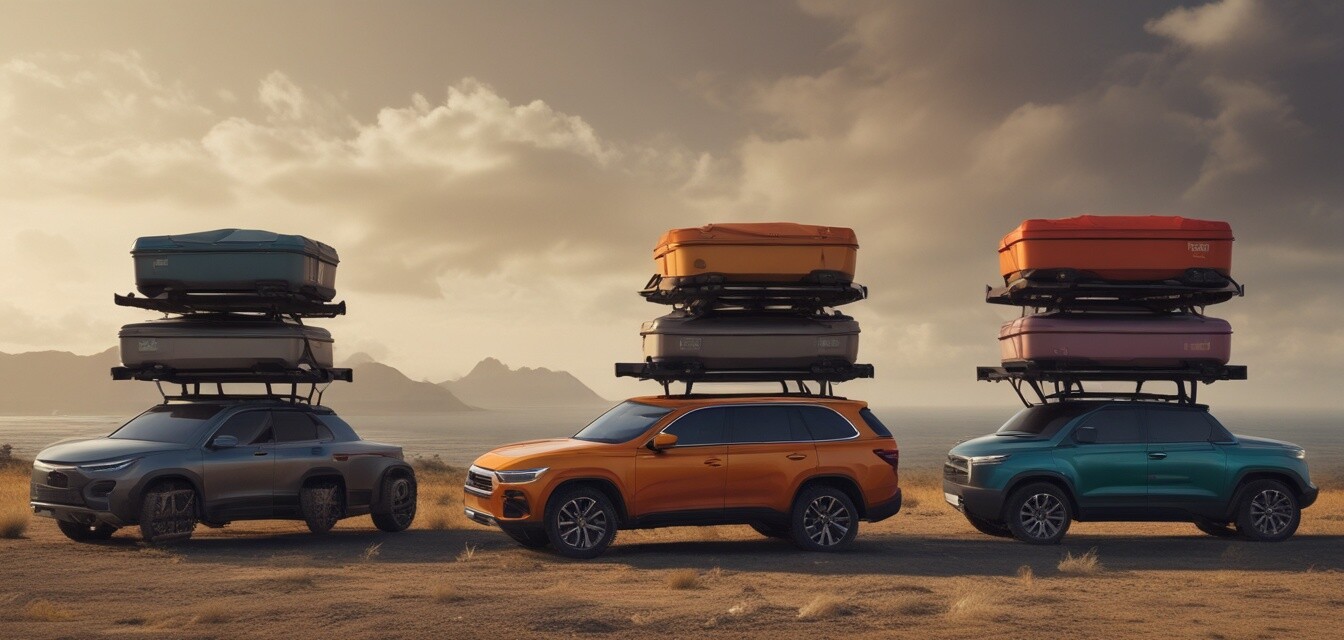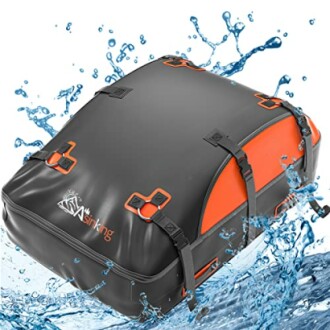
Choosing Between Roof Box Styles
Key Takeaways
- Different roof box styles serve unique needs; understanding these can enhance your travel experience.
- Soft-shell roof boxes are lightweight and flexible, while hard-shell boxes offer durability and security.
- Evaluate your vehicle, storage needs, and the conditions under which you'll travel when selecting a roof box.
- Utilize our buying guides to navigate options in roof racks and boxes.
- Consider the best roof box for activities like biking, kayaking, or long road trips.
When it comes to transporting gear on your road trips or outdoor adventures, choosing the right roof box style is essential. Whether you're an avid cyclist, a family going on vacation, or a weekend warrior, understanding the pros and cons of different roof boxes can help maximize convenience and safety during your travels. In this article, we will explore various roof box styles and provide guidance on which might best fit your travel needs.
Types of Roof Boxes
Soft-Shell Roof Boxes
Soft-shell roof boxes are made from durable, tear-resistant fabric that is easy to pack and store. They typically offer a great amount of space and can be more lightweight than hard-shell options.
Pros
- Lightweight and easy to handle
- Flexible and can fit various vehicle sizes
- Can be packed away easily when not in use
Cons
- Less secure than hard-shell boxes
- May not be as weatherproof
- Can be difficult to organize items inside
Hard-Shell Roof Boxes
Hard-shell roof boxes are constructed from tough plastic, providing better security and weather resistance. They are often more aerodynamic, which can reduce drag on your vehicle.
Pros
- Highly durable and long-lasting
- Provides excellent security for your belongings
- Better resistance to weather elements
Cons
- Heavier than soft-shell alternatives
- More expensive than soft-shell boxes
- Can be harder to store when not in use
Table: Comparison of Soft-Shell vs Hard-Shell Roof Boxes
| Feature | Soft-Shell Roof Boxes | Hard-Shell Roof Boxes |
|---|---|---|
| Weight | Lightweight | Heavier |
| Storage Capacity | Flexible | Stable |
| Durability | Moderate | High |
| Weather Resistance | Varies | Excellent |
| Security | Lower | Higher |
Featured Product: Asinking Car Rooftop Cargo Carrier Bag
One excellent option for a soft-shell roof box is the Asinking Car Rooftop Cargo Carrier Bag. It's designed for vehicles with or without racks and features a waterproof non-rip construction.
Asinking Car Rooftop Cargo Carrier Bag
This waterproof carrier bag offers 20 cubic feet of space and is perfect for maximizing your vehicle's cargo capacity while protecting your belongings.
Learn MoreChoosing the Right Roof Box for You
When it comes to selecting a roof box, consider the following:
- Vehicle Type: Ensure compatibility with your vehicle’s roof setup.
- Travel Needs: Think about the amount of cargo you plan to carry, and whether security is a top priority.
- Weather Conditions: If you frequently drive in adverse weather, prioritize hard-shell boxes for maximum protection.
- Storage: Check if you have enough space to store the box when it's not in use.
Explore More About Roof Options
For further insights into roof boxes, be sure to check out our resources on roof racks and boxes. This will help you understand variations and narrow down your choices.
Conclusion
Your choice between roof box styles will depend largely on your individual needs and usage context. By weighing the advantages and disadvantages of soft-shell and hard-shell boxes, you can make a more informed decision that enhances your travel experiences. Remember to evaluate all aspects, from ease of use to durability and storage options.

